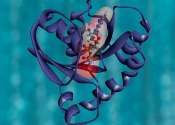Cell Metabolism, launched in January 2005, is one of the newer titles in the Cell Press family. The journal focuses on physiology, with an emphasis on understanding the molecular basis of how the body self-regulates in the face of change, and how disturbances in these balances can lead to disease. Advances in these fields take on a special importance given the increasing prevalence of obesity, diabetes, hypertension, and related maladies ("metabolic diseases") in the developed world. Created in response to what top scientists saw as a growing need for a specialized journal in this field, Cell Metabolism is run by in-house editorial and production teams with full responsibility for selecting and preparing content for publication.
- Publisher
- Elsevier
- Website
- http://www.cell.com/cell-metabolism/home
Some content from Wikipedia,
licensed under CC BY-SA









